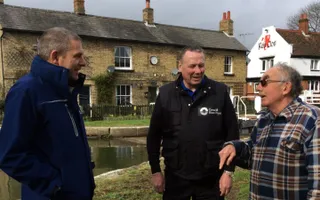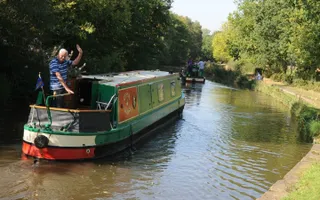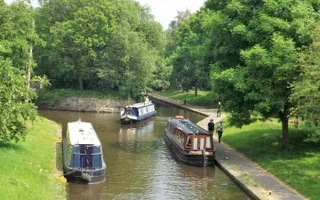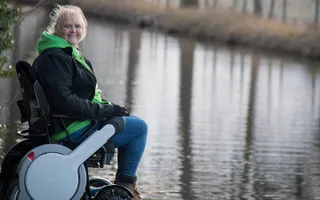I made the difficult decision to move to living on a narrowboat in the spring of 2019 and haven't looked back, but it's not for everyone.
When I say difficult, it's hard to convey the angst I went through. Onlookers may well see me as having done this quickly (a month and a half from making the decision) or easily, or without giving it much thought. In some ways these are true, but looking back it feels a long time coming.
The beginning
A few years ago, I started having symptoms that didn't make a lot of sense to me, and I easily brushed them aside. Zero energy, headaches, an inability to focus. These weren't entirely classic migraine symptoms, so it took a while to figure out that's what it was. It also wasn't like other conditions where you are told the next steps and directed to your local support groups. Migraine affects 1/7 people but is still little understood, so I didn't know at the outset how it was likely to affect my life.
Over a two-year period, I went from working 40 hours a week to 16. At this point I was coming home from work and either sobbing heavily from frustration, or had steady, silent tears wetting my cheeks from pure physical pain. Despite being around lots of people through work, and having my partner with me and my Dad around the corner, I felt increasingly isolated and useless because of my condition.
The joy of green spaces
I've always enjoyed being out in green spaces and I used to walk (or rather shuffle, like a 90-something, not a 30-something) around a small wood close to where I lived. I could almost see it from my home, taunting me on days I could barely talk, let alone take a stroll.
Nowadays I see water, hedges, fields and often woods too, as my partner and I chunter around the waterways. Rather than dragging myself around the same wood again and again, I get to be in new places at least every two weeks, as is the requirement for the boat license. Even if I can only get out for 10 minutes, I am immediately immersed in these green spaces I love. I feel like nature nurtures me back, even if that also means immersion in mud! I can lace up my boots, put on a beanie and trudge off without taking a sideways look into a mirror first. De-cluttering has been freeing, barely working a life saver, and reduced vanity has been a relief.
Support
My partner is not only by best friend and the best person at telling me when to slow down, but as he's been on the boat a few years, he's invaluable for knowing what he's doing. I never could have managed the all the physical elements of boating let alone the steep learning curve, thanks to my condition - a few years ago I would have taken pride in mastering both.
I'm lucky that although not well, I can generally get what I need in the form of repeat prescriptions and phone calls with GPs. I cannot sell this life as a ‘fix all' for fellow chronic health sufferers - as always, everyone is different. But if slowing down and being close to nature is what you need and can at the same time work less (whether you have a chronic health condition or not!) this life, or one a at least elements of it, is one that's worth considering a difficult decision for.
More of Naomi's stories like this one can be found on her blog, A Boat Time










